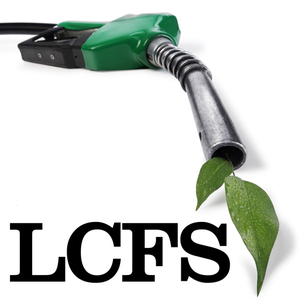California bill aims to delay LCFS changes until 2026

September 16, 2024
BY Erin Voegele
Legislation introduced in the California State Assembly on Sept. 11 aims to prevent the California Air Resources Board from amending the state’s Low Carbon Fuel Standard regulations prior to Jan. 1, 2026.
The bill was introduced by Assemblyman Joe Patterson, R-Rocklin, who said the bill aims to prevent possible gasoline price increases that could result from LCFS amendments that are expected to be finalized before the end of 2024. Patterson claims those amendments could increase gas prices by as much as 47 cents per gallon over the next year.
CARB has been working to update the LCFS program for more than a year. The agency originally issued proposed amendments to update its LCFS program in late 2023, with a public comment period that was open until Feb. 20, 2024. A public hearing on the proposed amendments was originally scheduled to be held in March 2024, but was later delayed and is now scheduled for Nov. 8, 2024. CARB on Aug. 12 published a notice that includes a wide variety of updates to the originally proposed LCFS amendments. Those updates were subject to a 15-day public comment period, which closed Aug. 27. CARB could vote to implement the proposed amendments during the Nov. 8 hearing, with the proposed LCFS program changes in place as soon as early 2025.
Advertisement
Among the newly proposed changes to the LCFS are those that would tighten the program’s near-term annual carbon intensity (CI) targets, limit how much soybean oil and canola oil can be used to produce LCFS-compliant biobased diesel fuels and, cancel previously proposed plans to roll jet fuels into the LCFS program.
A full copy of Patterson’s bill is available on the California State Assembly website.
Advertisement
Related Stories
The U.S. Energy Information Administration maintained its forecast for 2025 and 2026 biodiesel, renewable diesel and sustainable aviation fuel (SAF) production in its latest Short-Term Energy Outlook, released July 8.
XCF Global Inc. on July 10 shared its strategic plan to invest close to $1 billion in developing a network of SAF production facilities, expanding its U.S. footprint, and advancing its international growth strategy.
U.S. fuel ethanol capacity fell slightly in April, while biodiesel and renewable diesel capacity held steady, according to data released by the U.S. EIA on June 30. Feedstock consumption was down when compared to the previous month.
XCF Global Inc. on July 8 provided a production update on its flagship New Rise Reno facility, underscoring that the plant has successfully produced SAF, renewable diesel, and renewable naphtha during its initial ramp-up.
The U.S. EPA on July 8 hosted virtual public hearing to gather input on the agency’s recently released proposed rule to set 2026 and 2027 RFS RVOs. Members of the biofuel industry were among those to offer testimony during the event.
Upcoming Events










